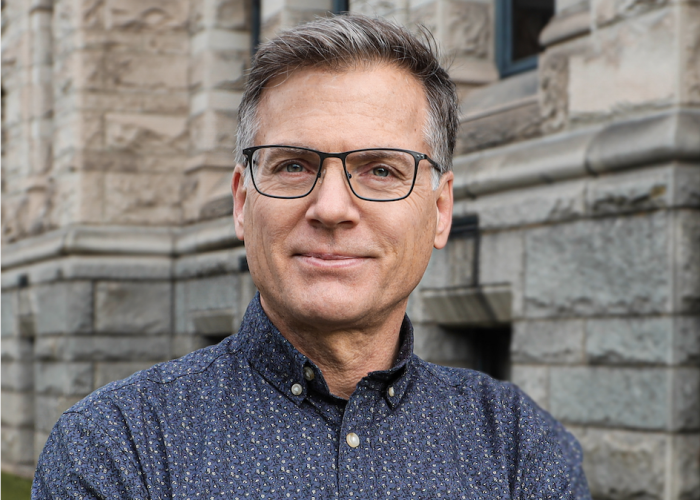
The Canadian Society for Immunology (CSI) has awarded Dr. Brad Nelson, distinguished scientist and co-director of BC Cancer’s Immunotherapy Program, with the prestigious 2022 Hardy Cinader Award. This award is the highest honour by the CSI, given to a Canadian scientist who exemplifies distinguished scientific leadership and accomplishments in immunology.
Today we are profiling Dr. Nelson to talk about his career and thoughts on being the 2022 Hardy Cinader Award recipient.
What inspired you to pursue a career in cancer immunotherapy research?
Back in 1989, I was working on my PhD in a different subject area, when my mother-in-law was diagnosed with ovarian cancer. Seeing her go through chemotherapy opened my eyes to the urgent need for better diagnostics and treatments. I had a gut sense that the immune system had to be part of the solution, so I switched my career focus to the field of cancer immunotherapy.
Where have you seen the most significant progress in cancer immunotherapy since the beginning of your career?
Even though the idea of immunotherapy has been around for 100 years, only modest progress was made throughout much of that time because there was so much we didn’t know about the immune system.
From when I started in this field in 1991 to joining BC Cancer in 2003, there was incredible progress around the world in deciphering the inner workings of the immune system, but there were no major clinical advances in immunotherapy. That all changed about 10 years ago with two major breakthroughs: immune checkpoint inhibitors and CAR T-cell therapy.
Many people know that immune cells protect us against illness and infection by attacking potentially dangerous cells in our body. To help distinguish “friend from foe”, the immune system has braking mechanisms called checkpoints that protect healthy tissues from attack. Unfortunately, tumour cells can use these checkpoints to avoid attack from immune cells. Immune checkpoint inhibitors are a new class of drugs that prevent cancer cells from doing this, leaving them vulnerable to killing by immune cells. Immune checkpoint inhibitors can be remarkably effective and have revolutionized the treatment of a wide array of cancers.
CAR T-cell therapy takes this a step further by genetically engineering immune cells to recognize and attack cancer cells. Briefly, a blood sample is acquired from the patient, and the immune cells are genetically engineered in the lab to “hardwire” them to recognize tumour cells. The engineered immune cells are then returned to the patient’s bloodstream, where they can circulate through the body and kill cancerous cells wherever they may reside. CAR T-cell therapy has been a game changer for the treatment of certain leukemias and lymphomas, and there is great hope this approach can be applied to other cancers.
I can’t take credit for these developments but I’ve done my part to advance these fields over the past 30 years. For example, with colleagues at BC Cancer and the Ottawa Hospital Research Institute, I’ve helped create a made-in-Canada CAR-T cell therapy for leukemia and lymphoma, which is being used in a clinical trial. Building on this foundation, our team has many more exciting immunotherapy innovations on the way.
What are your thoughts on the future of your field of research?
These exciting breakthroughs are just the beginning for cancer immunotherapy. Now that we understand the basics of how to genetically engineer T cells, this opens a world of possibilities to rewire the immune system to attack cancer in a very precise and potent way. These approaches, pioneered for blood cancers, have unlimited potential for treating other cancers in future, including common ones like breast, lung, prostate and colon cancer.
And most exciting of all…when immunotherapy treatments work, it is not just a matter of giving patients another few months or years to live. When the conditions are right, these treatments are curative. That’s why there’s so much excitement in the immunotherapy field.
What does this award mean to you?
Being honoured with the Cinader Award felt good but what made it even more special was that many of my current and former trainees vouched for me when they were contacted by the award committee. Being recognized as a mentor was such an honour and made me feel I must be doing something right!
Dr. Nelson started at BC Cancer in 2003 and is the founding director of BC Cancer’s Deeley Research Centre in Victoria, where he co-directs the immunotherapy program. Congratulations to Dr. Brad Nelson for receiving the 2022 Hardy Cinader award from The Canadian Society for Immunology.
Learn more about the CSI Cinader Award.